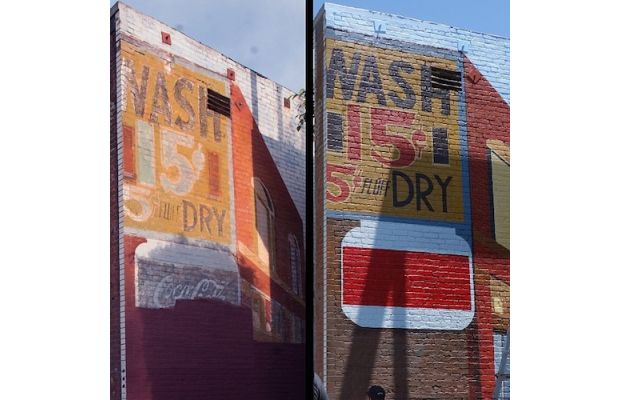Sullivan & Worcester LLP Press Release Concerning Claims For Guelph Treasure
Topics: Maria Altmann, National Socialists, Third Reich, Philipp v. Federal Republic of Germany et al. 15-c, United States Supreme Court, Gestapo, Foreign Sovereign Immunities Act, Markus Stoetzel, Mel Urbach, Nazis, Advisory Commission, Stiftung Preussischer Kulturbesitz, Washington DC, Hermann Goering, Restitution, Sullivan & Worcester LLP, Gerald Stiebel, World War II, Foreign Sovereign Immunities, flight tax, Adolf Hitler, United States District Court, Federal Republic of Germany, Alan Phillip, Welfenschatz
With New Congress, Resale Royalties Bill and Foreign Cultural Exchange Jurisdictional Immunity Clarification Act Are Dead (Again)
A quirk of parliamentary procedure is that any bill in Congress exists only for so long as that particular Congress is in session. This week, the 114th Congress took its seats, meaning that any bill not passed by both the House of Representatives and the Senate, and signed by the President, is a dead letter. This is the fate of many, many bills—indeed most. 
Topics: Legislation, Resale Royalties, Chuck Close, Moral Rights, Nazi-looted art, Foreign Sovereign Immunities Act, 28 U.S. § 1605, Art Law Day, 114th Congress, 22 U.S.C. § 2459, City of Amsterdam, Rep. Jerrold Nadler (D-NY), FSIA, expropriation exception”, droit de suite, IFSA, Foreign Sovereign Immunities, Senate, House of Representatives, Immunity from Seizure Act, President, Foreign Cultural Exchange Jurisdictional Immunity
Reports that Gurlitt Task Force May Not Meet Deadline—What Happens Then?
There were reports over the weekend that the Gurlitt Task Force, currently reviewing the provenance of more than 900 of the 1,280 works of art seized from Cornelius Gurlitt’s apartment, may not complete that review within the year reportedly set out in the agreement between Bavaria and Gurlitt before he died. There is still confusion about whether the Task Force was indeed foreshadowing a missed deadline (the agreement was in April, so the notion that the review would continue “into 2015” is not necessarily inconsistent with completing its task within one year), but assuming it was, what happens then?
Topics: Focus, Schwabinger Kunstfund, Hildebrand Gurlitt, Cornelius Gurlitt, Gurlitt Task Force, Nazi-looted art, Gurlitt Collection, Foreign Sovereign Immunities Act, Commission for Looted Art in Europe, Entartete Kunst, Anne Webber, Restitution, Der Spiegel, World War II, degenerate art, Kunstmuseum Bern, verschollene Kunst, Münchner Kunstfund
One Year After Gurlitt Revelation, No One is Pleased
It has now been one year since Focus magazine in Germany broke the Cornelius Gurlitt story on November 3, 2013. Looking back at the history of the case as it has unfolded since then, the overriding theme has been difficulty in obtaining accurate information about the current state of affairs. The appointed Task Force has made only two recommendations, and the status of the bequest to the Kunstmuseum Bern is still up in the air. And nobody seems remotely pleased.
Topics: Focus, Schwabinger Kunstfund, Hildebrand Gurlitt, Cornelius Gurlitt, Drefsden, Gurlitt Task Force, Nazi-looted art, Gurlitt Collection, Foreign Sovereign Immunities Act, Lex Gurlitt, Entartete Kunst, Salzburg, Bundesrat, Restitution, Der Spiegel, World War II, Foreign Sovereign Immunities, Switzerland, degenerate art, Kunstmuseum Bern, verschollene Kunst, Münchner Kunstfund, Ronald Lauder
Toren Amends Complaint Against Bavaria Over Liebermann Seized from Gurlitt, Spotlights Task Force Recommendation of Restitution in Support of Bailment Theory
Two weeks ago, the Federal Republic of Germany and Bavaria moved to dismiss the restitution claims brought by David Toren over ownership of Two Riders on the Beach (Zwei Ritter am Strand) by the German painter Max Liebermann. Toren’s uncle David Friedmann owned the painting in Breslau before he was targeted for his collection and it was stolen. Toren had not seen it since adolescence. The painting is further notable for two (related) reasons: it is among the 1,280 works of art found in Cornelius Gurlitt’s apartment in 2012, and it is one of only two that the Gurlitt Task Force has recommended be restituted (to Toren). As we noted at the time of the motion, Germany’s tactics seemed odd; Bavaria has committed to complying with the Task Force’s recommendations, and contesting this case seems to make little sense. The likeliest reason, in our view, is to try to make some jurisdictional law that will weaken other potential claimants to the Gurlitt trove.
Topics: Schwabinger Kunstfund, Hildebrand Gurlitt, Cornelius Gurlitt, Breslau, Max Liebermann, Germany, Silesia, Gurlitt Collection, Foreign Sovereign Immunities Act, bailment, Entartete Kunst, FSIA, Restitution, Bavaria, David Toren, Zwei Ritter am Strand, Free State of Bavaria, 28 U.S.C. § 1605(a)(2), Looted Art, World War II, Foreign Sovereign Immunities, Altmann v. Republic of Austria, Freistaat Bayern, Kunstmuseum Bern, Riders on the Beach, Federal Republic of Germany, Raubkunst, David Friedmann, Münchner Kunstfund
Bavaria and Germany Move to Dismiss Gurlitt Litigation, But Raise Questions About Why They Are Resisting a Lawsuit Over Painting that Task Force Recommended They Restitute to David Toren
To date, only one lawsuit has been filed in the United States related to the seizure from Cornelius Gurlitt’s apartment of some 1,280 works of art, a story that broke a year ago with the concern about the objects’ Nazi-looting connections via his father Hildebrand Gurlitt (the view here last winter was that the longer Germany failed to address the situation comprehensively, the more likely such U.S. litigation became). That lawsuit, brought by David Toren, seeks the return of Two Riders on the Beach (Zwei Ritter am Strand), by Max Liebermann. Germany and Bavaria moved to dismiss the case yesterday, which is particularly puzzling given that among the very few determinations made by the Gurlitt Task Force (in August), it is that the Liebermann should be returned. The cynical view is that they are looking to forestall future claims, but it is past time for the painting to be returned.
Topics: Schwabinger Kunstfund, Hildebrand Gurlitt, Cornelius Gurlitt, Breslau, Max Liebermann, Germany, Silesia, Gurlitt Collection, Foreign Sovereign Immunities Act, bailment, Entartete Kunst, FSIA, Restitution, Bavaria, David Toren, Zwei Ritter am Meer, Free State of Bavaria, 28 U.S.C. § 1605(a)(2), Looted Art, World War II, Altmann v. Republic of Austria, Freistaat Bayern, Kunstmuseum Bern, Riders on the Beach, Federal Republic of Germany, Raubkunst, David Friedmann, Münchner Kunstfund
Argentina, Bond Payment Default, Contempt, and Art Restitution Claims: An Unlikely But Important Mix
When Judge Thomas P. Griesa of the U.S. District Court for the Southern District of New York (Manhattan) held Argentina in contempt on Friday for the South American nation’s default on bond payments, few people likely perked up with attention about the possible implication for art restitution. But with a bit of indulgence, the connection is more important than it might first seem.
Topics: Banco de la Nación, Library, Judge Thomas P. Griesa, Bank of New York Mellon, Argentina, Foreign Sovereign Immunities Act, Rebbe, Southern District of New York, Russian Federation, FSIA, Lubavitch, Restitution, A bond, Foreign Sovereign Immunities, default, Chabad, Paul E. Singer, Art Law Report
Claims by Mendelssohn Bartholdy Heirs over Picasso "Madame Soler" Dismissed, Court Finds No FSIA Jurisdiction After Evidentiary Hearings
The U.S. District Court for the Southern District of New York has dismissed claims for ownership of Madame Soler by Pablo Picasso, currently at the Pinakothek der Moderne in Munich. Just as the relevance of Judge Jed Rakoff’s comments over another art restitution case brought by the heirs of Paul von Mendelssohn Bartholdy unexpectedly came to the fore recently, Judge Rakoff’s decision is now the most recent in a line of frustrations for the heirs of Mendelssohn Bartholdy, a victim of Nazi persecution in Berlin in the 1930s. The ramifications of this case may be fairly narrow, however, as the case was premised on allegations of specific transactions in New York rather than general allegations about the conduct of Germany. The claimants could appeal, or perhaps turn to the Limbach Commission if they could be heard (the Pinakothek is a subdivision of Germany for jurisdictional analysis, but it’s unclear at first blush if the Commission would view this claim as within its province).
Topics: Paul von Mendelssohn Bartholdy, Berlin, commercial activity exception, Cornelius Gurlitt, Florence Kesselstatt, Judge Jed Rakoff, Halldor Soehner, Saint-Jean-Cap-Ferrat, Julius Schoeps, Upper East Side, Prussia, Max Liebermann, Night Café, Gurlitt Collection, Foreign Sovereign Immunities Act, Preussen, France, State Paintings Collection, Madame Soler, Museum of Modern Art, Edelgard von Lavergne-Peguilhen, Van Gogh, Munich, Justin K. Thannhauser, FSIA, expropriation exception”, Nazi persecution, Boy Leading a Horse, Restitution, David Toren, Bayerische Staatsgemäldesammlung, Bavarian State Ministry for Education and Culture, Free State of Bavaria, World War II, Foreign Sovereign Immunities, Pinakothek der Moderne, Bayerisches Staatsministerium für Bildung und Kult, Bundesländer, Altmann v. Republic of Austria, Freistaat Bayern, Le Moulin de la Galette, Kurt Martin, München, Pablo Picasso, Federal Republic of Germany, Limbach Commission, Wissenschaft und Kunst
VARA Likely to Apply Retroactively to Victor Henderson “Brooks Avenue Painting Claim”
We reported recently on a new lawsuit in California invoking the Visual Artists Rights Act (VARA) in the context of a mural by Victor Henderson, of the Los Angeles Fine Arts Squad. Henderson alleges that property owner Ralph Ziman had his “Brooks Avenue Painting” water blasted in 2013, thus destroying the integrity of his work and infringing on Henderson’s rights under VARA.
Topics: Brooks Avenue Painting, Anschlus, Foreign Sovereign Immunities Act, Victor Henderson, Copyright Act § 113(d), Los Angeles Fine Arts Squad, Visual Artists Rights Act, VARA, World War II, Copyright, Austria, Ralph Ziman, ex post facto
Foreign Cultural Exchange Jurisdictional Immunity Clarification Act Passes House of Representatives Overwhelmingly
The Foreign Cultural Exchange Jurisdictional Immunity Clarification Act (HR 4292) passed the House of Representatives yesterday, 388 to 4. Voting against were Reid Ribble (R, WI), Mark Sanford (R, SC), Marlin Stuzman (R, IN), and Justin Amash (R, MI). As discussed here previously, the bill would amend the Foreign Sovereign Immunities Act, 28 U.S.C. § 1605 (FSIA) to clarify when a cultural object loaned with immunity from seizure pursuant to the Immunity from Seizure Act (IFSA) can also constitute the “commercial activity” element necessary to overcome sovereign immunity and bring a suit in U.S. federal court. Invocation of the FSIA has, since Altmann v. Republic of Austria up through the cases pending against Hungary and the Thyssen-Bornemisza Collection pending today, become the go-to strategy to seek federal jurisdiction over World War II/Nazi-looted art restitution cases in particular. 
Topics: Reid Ribble, Mark Sanford, Thyssen-Bornemisza Collection, Art & Cultural Heritage Law Committee of the A, Marlin Stuzman, Nazi-looted art, Foreign Sovereign Immunities Act, Malevicz v. City of Amsterdam, 22 U.S.C. § 2459, Justin Amash, FSIA, Restitution, HR 4292, World War II, IFSA, Foreign Sovereign Immunities, Altmann v. Republic of Austria, Immunity from Seizure Act, 28 U.S.C. § 1605, Foreign Cultural Exchange Jurisdictional Immunity




